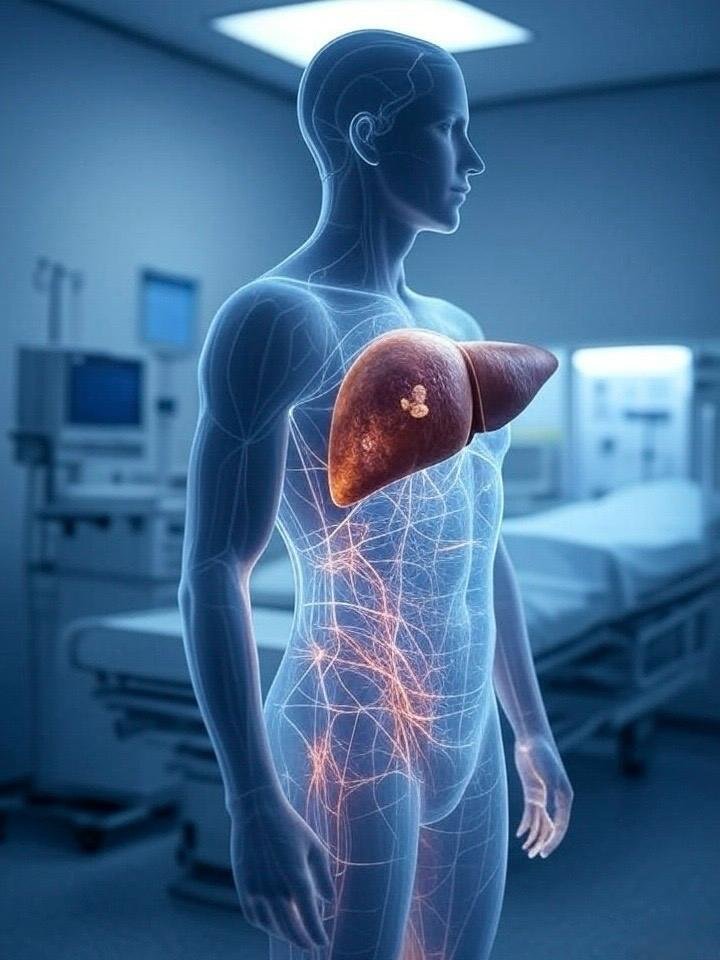Dr. Marco V. Benavides Sánchez.
Liver cancer remains one of the most challenging diseases in modern medicine. Often diagnosed late and difficult to treat, it carries a high mortality rate worldwide. But recent advances in artificial intelligence (AI) are beginning to shift the landscape—offering new tools for earlier diagnosis, more accurate treatment planning, and better long-term monitoring.
A 2025 scoping review published in Artificial Intelligence in Medicine by Andrea Chierici and colleagues examined over 13,000 studies, selecting 62 that applied AI in real clinical settings for liver cancer. The findings are both promising and sobering.
What Can AI Actually Do?
AI refers to computer systems that learn from data and make predictions or decisions without being explicitly programmed for every task. In healthcare, this means AI can analyse thousands of medical images, lab results, and patient records to detect patterns that might escape the human eye.
In the context of liver cancer, AI is being used to:
– 🧪 Improve early detection using CT and MRI scans.
– 🧠 Distinguish between benign and malignant liver lesions with greater precision.
– 🗺️ Assist in planning personalised treatments.
– 📈 Predict disease progression and treatment response.
– 🔄 Support long-term follow-up and monitoring.
These capabilities are particularly valuable in liver cancer, where early diagnosis can dramatically improve survival rates.
What Does the Research Show?
The review highlights that deep learning models—advanced forms of AI that mimic the way human brains process information—are achieving high sensitivity and specificity in detecting hepatocellular carcinoma and intrahepatic cholangiocarcinoma.
Multimodal AI systems, which combine imaging data with clinical and genetic information, are especially effective in improving diagnostic accuracy. In some cases, these systems outperform traditional methods, identifying tumours that might otherwise be missed.
The Catch: Promising, But Not Yet Mainstream
Despite the impressive results, the authors caution that many AI models are still in early stages of development. Key limitations include:
– 🧪 Lack of external validation: Many models have only been tested in the institutions where they were developed.
– 🧍♂️ Limited clinical integration: Few have been assessed for their usefulness in everyday medical practice.
– ⚖️ Regulatory and ethical hurdles: Robust frameworks are needed to ensure safety, fairness, and transparency.
In short, while the technology is advancing rapidly, its real-world application remains uneven.
Why Should This Matter to You?
Because health is everyone’s concern. Whether you’re a patient, a carer, or simply someone who values progress in public health, understanding how AI is reshaping medicine helps us all make better-informed decisions.
This isn’t about replacing doctors with machines. It’s about giving clinicians better tools to do their jobs—more efficiently, more accurately, and with greater confidence.
Moreover, as citizens, we have a role to play in supporting responsible innovation. That means asking the right questions: Are these systems safe? Are they equitable? Are they being used to benefit all patients, not just a privileged few?
Final Thoughts
Artificial intelligence won’t cure liver cancer on its own. But it may help us catch it earlier, treat it more precisely, and monitor it more effectively. The road ahead requires collaboration—between technologists, clinicians, regulators, and patients.
If we get it right, AI could become one of the most powerful allies in the fight against liver cancer. Not a miracle, but a meaningful step forward.
—
📚 Reference:
Chierici, A., Lareyre, F., Iannelli, A., Salucki, B., Goffart, S., Guzzi, L., Poggi, E., Delingette, H., & Raffort, J. (2025). Applications of artificial intelligence in liver cancer: A scoping review. Artificial Intelligence in Medicine, 169, 103244. https://doi.org/10.1016/j.artmed.2025.103244
#ArtificialIntelligence #Medicine #Surgery #Medmultilingua


Leave a Reply